In the afternoon of December 3rd, 2022, the national final of the 12th National University "Model Mayor" Competition was successfully held. The competition is hosted by the Government Strategy and Public Policy Research Professional Committee of the China Management Modernization Research Association and the School of Government and Management of Central University of Finance and Economics. It is also hosted by the "Future Civil Servant Home" moral education demonstration base and the Public Management Research Association. Since the launch of this competition in August, it had attracted over 360 teams from nearly 50 universities to participate. After expert evaluation, 11 teams from ten universities, including Renmin University of China, Sun Yat-sen University, Nankai University, Shandong University, Sichuan University, South China University of Technology, Shenzhen University, Capital University of Economics and Trade, Central South University of Finance and Law, and Central University of Finance and Economics, were ultimately nominated for the national finals.
The chairman of the evaluation committee for this competition is Mr. SUN Qi, Secretary of the Party School and Executive Vice President of the Jining Municipal Committee of the Communist Party of China. The members of the evaluation committee include Researcher SUN Kuanping from the Institute of Urban Governance at Peking University, Vice District Mayor of Taierzhuang District Government in Zaozhuang City, Shandong Province, Professor QU Xin from the School of Criminal Justice at China University of Political Science and Law, and Professor YU Peng, Vice Dean of the School of Government and Management in Central University of Finance and Economics.
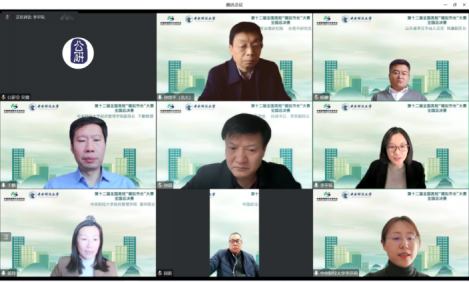
The competition is divided into three stages: team presentation, "Mayor" PK, and judges' comments.
1、 Team presentation
During the team presentation phase, the team presented the research process and results based on the previously submitted report text.
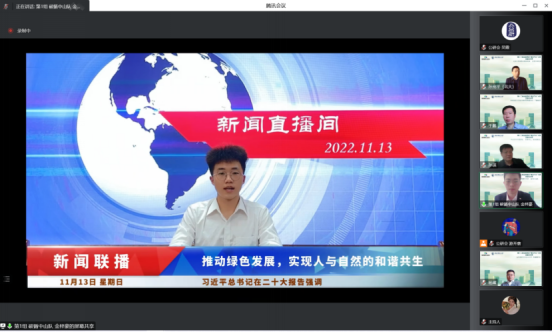
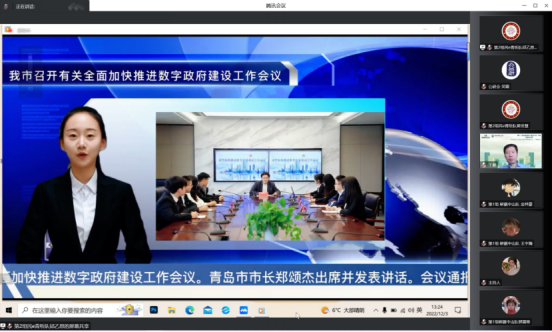
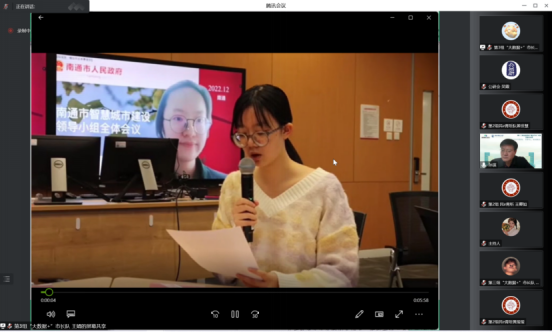
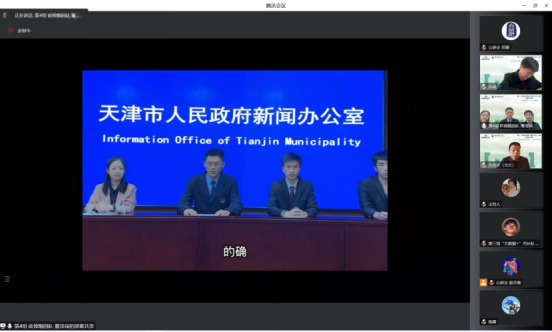
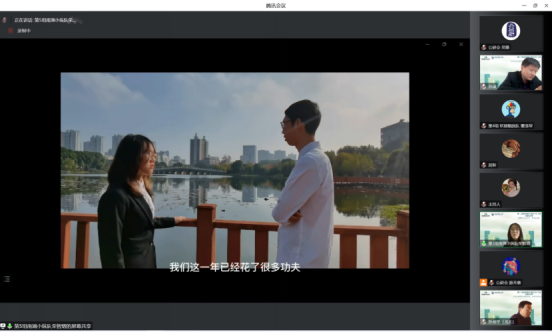
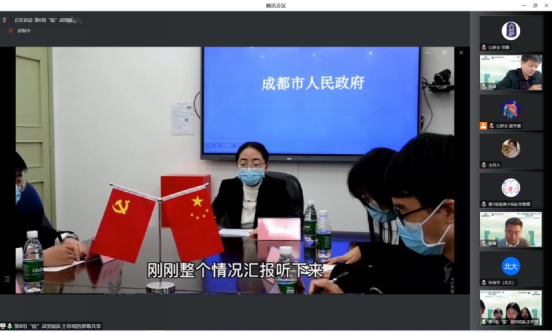
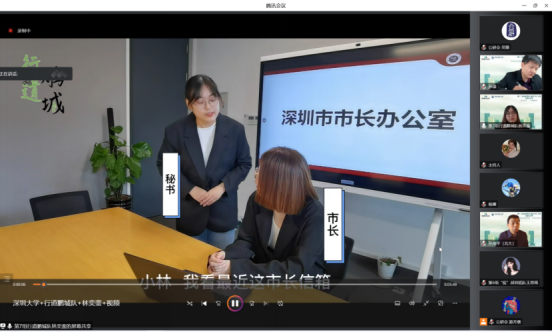
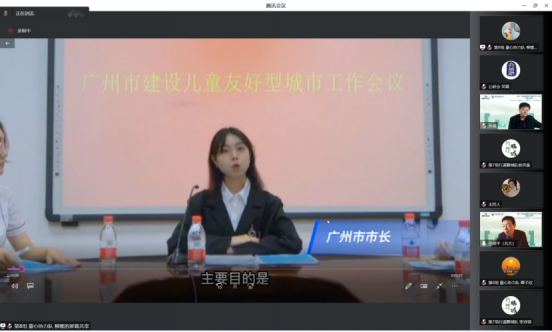
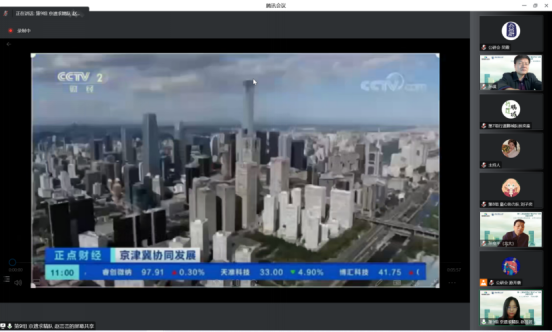
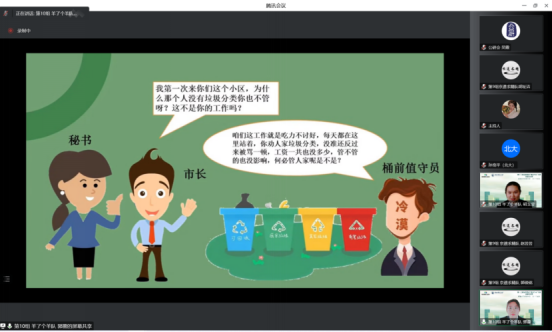
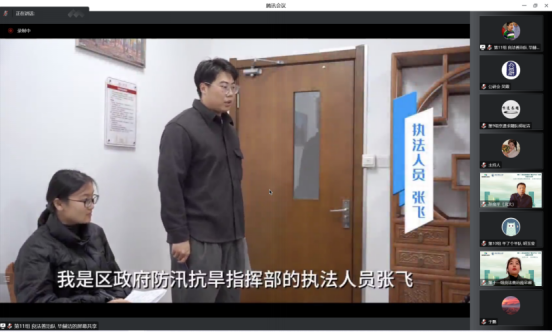
The "big data+" team from Renmin University of China's "big data+" examined the specific effectiveness of big data empowering Nantong City to build a modern governance system with "effective coordination, clear rights and responsibilities", and proposed optimization suggestions for the modernization of urban governance.
The Chimney Cutting Team from Nankai University was committed to analyzing the problems and causes of data chimneys in the current grassroots digital governance process in Tianjin, and proposing effective solutions.
2、 Mayor PK
In the "Mayor" PK phase, the judges selected questions based on the background of "The Seventh National Population Census found that out of 337 cities at or above the prefecture level in China, 150 cities had a decrease in urban population of 36.37 million, an increase of 61 cities compared to the cities with population reduction from 2000 to 2010. Shrinking cities has become an important challenge for urban development in China", The question 'How will you face this challenge and propose your own policy agenda as the mayor of a shrinking city?' was raised, and each team of 'mayors' responded. RONG Zhiyi, the mayor of the Nanhu Small Column Team from Zhongnan University of Economics and Law, believed that a shrinking city had two characteristics, namely population loss and insufficient industrial support and also proposed solutions from various aspects such as people first, industrial structure, talent introduction, and promoting regional coordinated development. ZhAO Yunyun, the mayor of the Beijing Heritage Improvement Team from Central University of Finance and Economics, pointed out the types of shrinking cities and pointed out that the background of urban contraction in China was not anti- urbanization, but the increasingly severe polarization of regional economic development and proposed seven specific solutions.
3、 Judges comments
After the "Mayor PK" phase, Secretary SUN Qi, the chairman of the judging committee, summarized the exhibition results of the participating teams and affirmed their excellent performance. The participating teams focused on the current major issues in China, which had significant theoretical and practical significance. SUN Qi believed that the competition had a large scale, new topic selection, and high level. He praised the competition for persistently creating a good platform for students, and also hoped that the participating teams could solve practical problems in the future, laying a solid foundation for the well-being of the people, and achieving good governance, good governance, and the rule of law for the Chinese government.
Finally, Professor YU Peng, as the representative of the organizers, made an invitation to the next competition, hoping that various universities and competition areas would continue to support the competition, and also hoping that young students could continue to care about urban development issues. The report of the 20th National Congress of the Communist Party of China pointed out that adhering to the principle of "cities are built by people, and cities are for people", and also proposed that "if youth are strong, the country is strong", which was also a two-way journey between the youth and the country. Hoping that this participation experience could plant a seed of "a beautiful city" in the hearts of students, and everyone could achieve a transformation from "simulated mayor" to "real mayor".